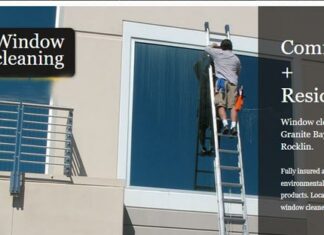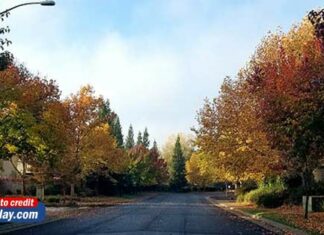SACRAMENTO, Calif. – Just when Sacramento Valley residents had acclimatized to more the moderate August temperatures, that end-of-summer heat wave has returned. The coming days promise to be very hot, with the heat continuing well into the late evening. For many people, the weather is manageable with air conditioning and fans, so long as the power doesn’t go out.
Hot weather can be a big concern for older people says Calvin Hirsch, a geriatrics specialist with UC Davis Health System.
‘No one is comfortable when the temperature soars,’ said Hirsch, who is a professor of internal medicine, ‘but seniors account for a disproportionate number of heat-related hospitalizations and deaths.’
Hirsch noted there are many factors involved in why seniors are so vulnerable in hot weather. Some individuals have health problems, such as heart disease, that make it more difficult for the body to circulate blood properly and dissipate heat. Others are on medications, like diuretics (water pills), that cause water loss and worsen the dehydrating effects of high temperatures. Obese individuals have an especially hard time keeping cool.
In addition, many seniors who live on their own will not or cannot venture far from their homes or apartments. For security reasons, they also are less inclined to keep windows open to help with the cooling power of air circulation. If the power goes out and air conditioning or fans don’t work, elderly residents are much more vulnerable to rising indoor temperatures and may be unable to easily leave for a cooler environment.
Preventing heat-related illness depends mostly on making efforts to stay comfortable: drinking fluids when thirsty, sponging off with a cool towel, and escaping unrelenting heat in a location with more comfortable and safer temperatures.
‘An elderly person may not even be aware of being thirsty or feeling too hot, especially if suffering from dementia or diabetes, which diminishes sensation,’ said Hirsch. ‘Many medications, such as tranquilizers, can blunt an individual’s awareness of discomfort, as can alcohol.’
Hirsch offers several of steps to help keep a house or apartment as cool as possible:
· Vacuum or change the filters in air conditioners. A clean filtration system offers both efficiency and more sustained cooling capabilities.
· Keep the sunshine out. Use shades or draperies on sunny windows. Outdoor awnings also can make big difference in keeping heat out of the house.
· Reflect light and heat away from the house by covering pieces of cardboard with aluminum foil on one side and placing it in the windows (preferably on the outside) facing out during hot days.
· Use portable fans for rooms that are used the most, such as the living room and bedroom.
With high temperatures, it’s especially important for the elderly to follow heat-wave precautions:
· Stay in the coolest place as much as possible, and avoid too much activity. Usually the coolest part of a house is on the first floor. Outdoors, in the shade, may be cooler than indoors, especially if a breeze comes up.
· Use the air conditioner! Many elderly people avoid turning it on to save money. If there is no air conditioner or the power has gone out, seniors should try to spend at least a few hours in an air-conditioned public place, such as a library, shopping mall, movie theater or restaurant.
· Eat lightly and drink plenty of fluids. Avoid alcohol and drinks with caffeine. Don’t take salt tablets unless advised to do so by a doctor.
· Make use of hand-held, battery-operated fans and misters. These inexpensive gadgets usually can be found in many stores. They can be life-savers during hot weather, especially if the power goes out.
· Rub wet washcloths over your wrists, face, and back of neck. For a quicker cool-down, wrap ice cubes in a washcloth or use packs of frozen vegetables or blue cooler packs.
‘It also crucial that we all stay in frequent touch with elderly relatives and neighbors during this heat wave,’ added Hirsch. ‘Keep in mind that heat stroke may begin with flu-like symptoms such as a loss of appetite, nausea, light-headedness or muscle cramping. But such symptoms can develop rapidly or slowly over a period of days. A person may not even be aware of feeling hot or thirsty, so it’s important for the rest of us to pay close attention to health and well-being of our loved ones and friends during this heat wave.’
Hirsch says that if chilled liquids and other cooling-off measures don’t seem to be working, a trip to the emergency room could be in order. Heat stroke can be fatal if not recognized and treated in time.
(21+ years strong)
Welcome to the brighter side!
Get in front of local customers! 24/7 (365)























